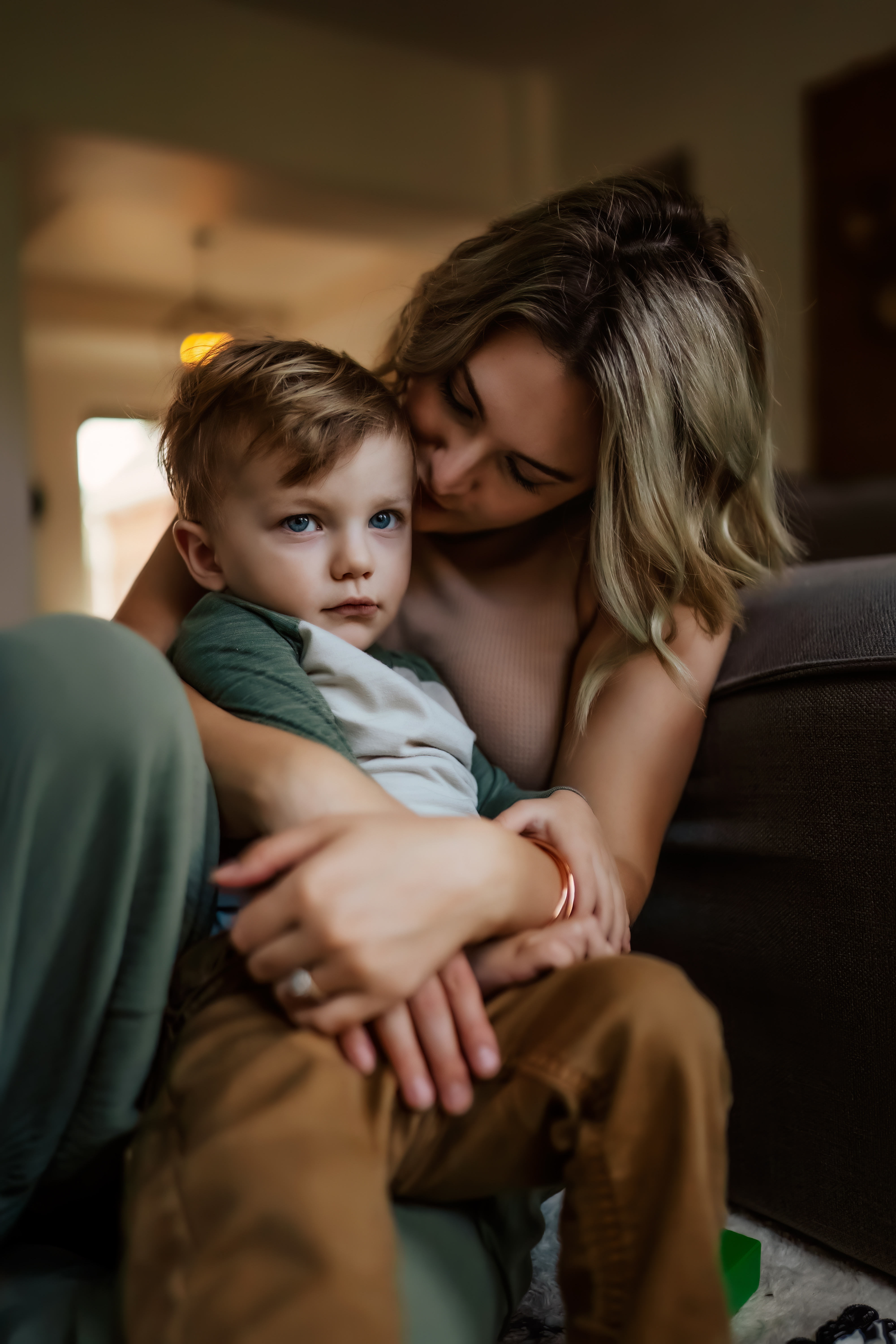4 Tips To Help Moms With Postpartum Hair Loss
Tips to Help Moms With Postpartum Hair Loss
Losing a significant amount of hair postpartum is a challenge many new mothers face, and it’s a journey I’m all too familiar with. You may be asking, what can actually help with postpartum hair loss? Isn’t it just a normal thing that happens? After my first baby, not only did I lose a LOT of hair, but I also contracted C0vid shortly after delivery, which I believe exacerbated the problem. So, when I became pregnant with my second child, I was determined to take proactive steps to avoid a repeat of my previous experience.
In this post, I want to share the top four strategies that worked for me in preventing postpartum hair loss. However, it’s important to remember that everyone’s body is unique. I strongly advise consulting with a naturopathic doctor or your primary care doctor, particularly one who specializes in women’s hormones, to tailor advice to your specific needs.
Disclaimer: Just a friendly heads-up! I’m a proud participant in the Amazon Associates program, which means I might earn a little something if you click on my links and make a purchase. Think of it as a virtual high-five for sharing my favorite finds! Thanks for supporting my blog—every bit helps me keep the creativity flowing!

I had to chop off my hair because it was just so thin!
1. Increasing Protein Intake
First and foremost, I focused on increasing my protein intake. This is a beneficial practice for all women, whether postpartum or not. Even during my pregnancy, I aimed for 100 grams of protein per day, which is quite a lot. While 80 grams might suffice normally, I recommend boosting it to 100 grams post-pregnancy to aid in hair loss prevention and hair growth. This is based on a consensus from numerous evidence-based articles and medical experts who note that the hair shaft is primarily composed of protein, specifically keratin.
Some keratin-rich foods I incorporated into my diet include
- Onions (great in salads and with eggs in the morning)
- Sunflower Seeds
- Garlic
- Carrots
- Chickpeas
- Green leafy vegetables
- Mangoes
- Eggs—I aim for 2 to 3 eggs every morning.
Additionally, some of my go-to high-protein foods include cottage cheese, meat/fish/poultry, mixed nuts, and Greek yogurt. Again, go get your hormones and bloodwork checked to see what you need!
2. Vitamins That Truly Make a Difference
Next, let’s talk about vitamins. I was initially skeptical about their effectiveness until I learned that modern agricultural practices have depleted vital minerals in the soil, affecting the nutrient quality of fruits and vegetables. This led me down the rabbit hole. My advice is to find vitamins that are in real foods like dried beef liver in capsules, or dried organ meets in general. The Garden of Life brand does a great job ensuring their vitamins are sourced from whole/real foods rather than synthetically created.
Here are a list of vitamins to consider to help prevent hair loss postpartum. PLEASE keep in mind much of these vitamins will be found in the healthy whole foods , so don’t overdo it with the vitamins! In fact many people, myself included, have experienced REALLY scary side effects from hair growth vitamins, I had to stop taking those, and it really doesn’t matter which brand.
- Biotin (Vitamin B7) Biotin, also known as vitamin B7, is a water-soluble vitamin that plays a crucial role in maintaining healthy hair. You can find it in these whole foods: brewer’s yeast; cooked eggs, especially egg yolk; sardines; nuts (almonds, peanuts, pecans, walnuts) and nut butters; soybeans; other legumes (beans, blackeye peas); whole grains; cauliflower; bananas; and mushrooms.
- Iron (First please find out if your levels are low!)
- Vitamin D – Get outside people! Thats your best source of Vitamin D.
- Zinc. I really love this one here. ( I am on my 9th bottle of this!)
- Omega-3 Fatty Acids – I absolutely love and trust this brand: Standard Process, its used by man professionals, grab it here.
- Vitamin A – Found in Beef Liver and Organ meats as well as fruits and veggies.
- Vitamin E – Found in fats and oils from animal products (meat, poultry, fish and diary foods), as well as vegetables, seeds and cereals. You only need a small amount of these fats and oils to get enough vitamin E in your diet.
- Collagen – Drinking bone broth or adding it in your smoothies is great! Here is a good one.
3. Effective Topical Treatments
There are countless topical treatments available, but I’ll only share the ones I’ve personally tried and found effective.
My regimen:
About once a week, before washing my hair, I brush it out and massage a mixture of pure rosemary essential oil (known for its hair growth benefits and pleasant scent) with castor oil and coconut oil into my scalp. I use a scalp massage tool to stimulate blood flow, which is beneficial for hair regrowth and also incredibly relaxing. You can grab all four in the links below!
- 1. Rosemary essential oil. This brand is the best quality and most affordable: Cliganic Organic Rosemary Essential Oil
- 3. A Hair Massage Tool. Now listen, the silicons ones I hate because I feel like they pull on my hair and snag and cause knots, this wooden one is the way to go!
4. The Importance of Sleep and Exercise
Finally, never underestimate the power of good sleep and regular exercise. While it may seem daunting with a new baby, prioritizing sleep when possible—such as napping when your kids do, getting to bed earlier, or sleeping in when you can—makes a significant difference. Melatonin, a hormone regulated by sleep, has been linked to hair growth. Poor sleep can lead to reduced melatonin levels, potentially causing hair loss and weakening hair follicles. Check out this article from the National Library of Medicine on the link between sleep and hair loss. Managing stress through adequate sleep is crucial, as is keeping your body moving. For me, this meant enjoying walks, fun dance workouts with my kids, or a quick 15-minute weightlifting session.
By consistently following these four strategies, I’ve seen a noticeable improvement in my hair’s growth and fullness. I’m curious to hear about your experiences and tips for managing postpartum hair loss. What strategies have worked for you?
